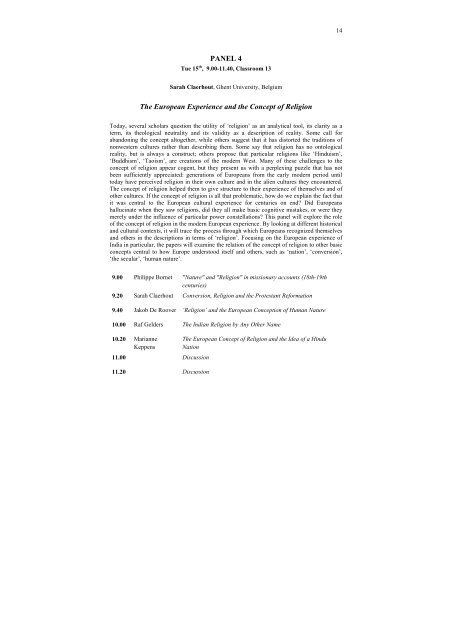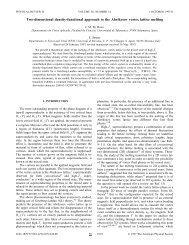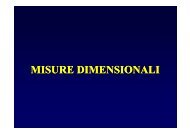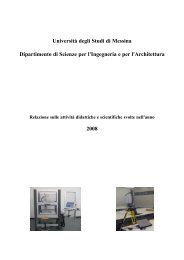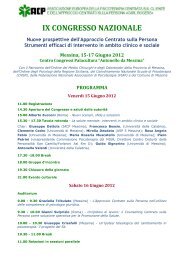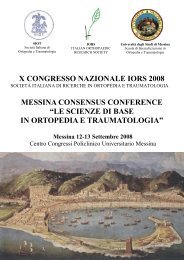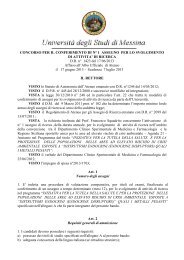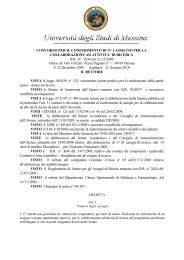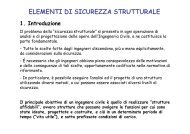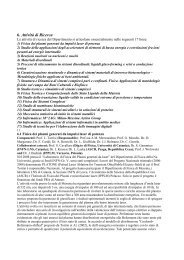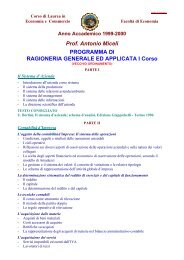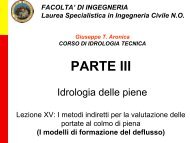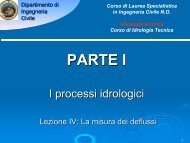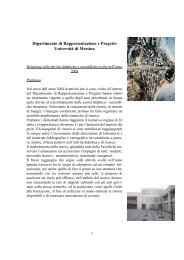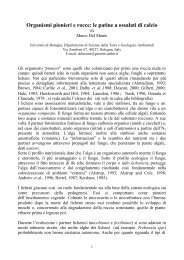PROGRAMME AND ABSTRACTS - Università degli Studi di Messina
PROGRAMME AND ABSTRACTS - Università degli Studi di Messina
PROGRAMME AND ABSTRACTS - Università degli Studi di Messina
Create successful ePaper yourself
Turn your PDF publications into a flip-book with our unique Google optimized e-Paper software.
PANEL 4<br />
Tue 15 th , 9.00-11.40, Classroom 13<br />
Sarah Claerhout, Ghent University, Belgium<br />
The European Experience and the Concept of Religion<br />
Today, several scholars question the utility of ‘religion’ as an analytical tool, its clarity as a<br />
term, its theological neutrality and its vali<strong>di</strong>ty as a description of reality. Some call for<br />
abandoning the concept altogether, while others suggest that it has <strong>di</strong>storted the tra<strong>di</strong>tions of<br />
nonwestern cultures rather than describing them. Some say that religion has no ontological<br />
reality, but is always a construct; others propose that particular religions like ‘Hinduism’,<br />
‘Buddhism’, ‘Taoism’, are creations of the modern West. Many of these challenges to the<br />
concept of religion appear cogent, but they present us with a perplexing puzzle that has not<br />
been sufficiently appreciated: generations of Europeans from the early modern period until<br />
today have perceived religion in their own culture and in the alien cultures they encountered.<br />
The concept of religion helped them to give structure to their experience of themselves and of<br />
other cultures. If the concept of religion is all that problematic, how do we explain the fact that<br />
it was central to the European cultural experience for centuries on end? Did Europeans<br />
hallucinate when they saw religions, <strong>di</strong>d they all make basic cognitive mistakes, or were they<br />
merely under the influence of particular power constellations? This panel will explore the role<br />
of the concept of religion in the modern European experience. By looking at <strong>di</strong>fferent historical<br />
and cultural contexts, it will trace the process through which Europeans recognized themselves<br />
and others in the descriptions in terms of ‘religion’. Focusing on the European experience of<br />
In<strong>di</strong>a in particular, the papers will examine the relation of the concept of religion to other basic<br />
concepts central to how Europe understood itself and others, such as ‘nation’, ‘conversion’,<br />
‘the secular’, ‘human nature’.<br />
9.00 Philippe Bornet "Nature" and "Religion" in missionary accounts (18th-19th<br />
centuries)<br />
9.20 Sarah Claerhout Conversion, Religion and the Protestant Reformation<br />
9.40 Jakob De Roover ‘Religion’ and the European Conception of Human Nature<br />
10.00 Raf Gelders The In<strong>di</strong>an Religion by Any Other Name<br />
10.20 Marianne<br />
Keppens<br />
11.00 Discussion<br />
11.20 Discussion<br />
The European Concept of Religion and the Idea of a Hindu<br />
Nation<br />
14


